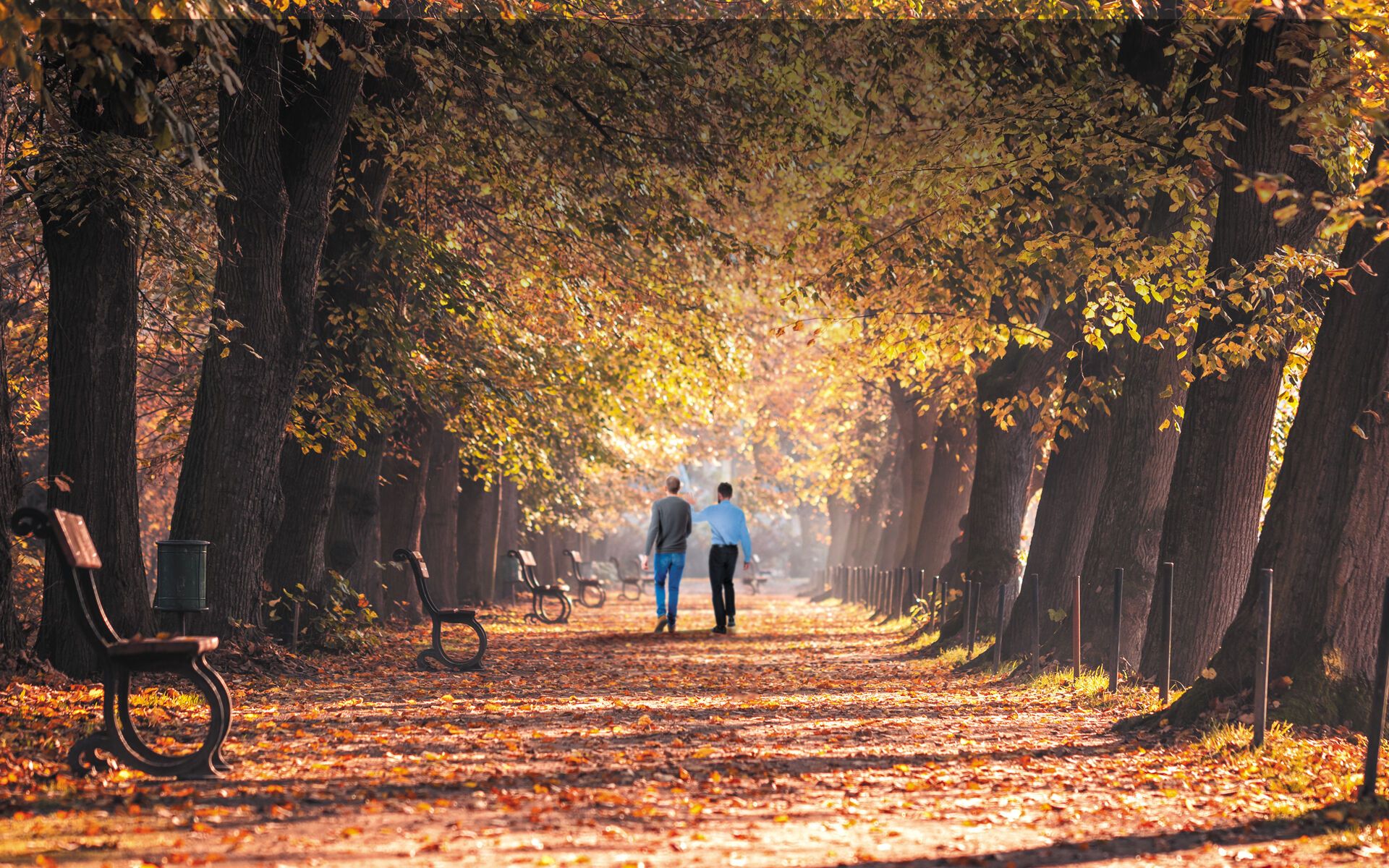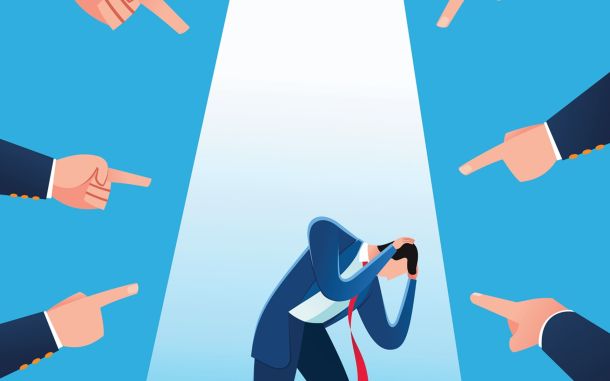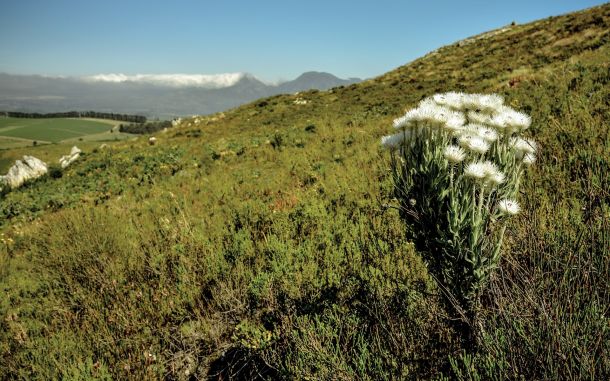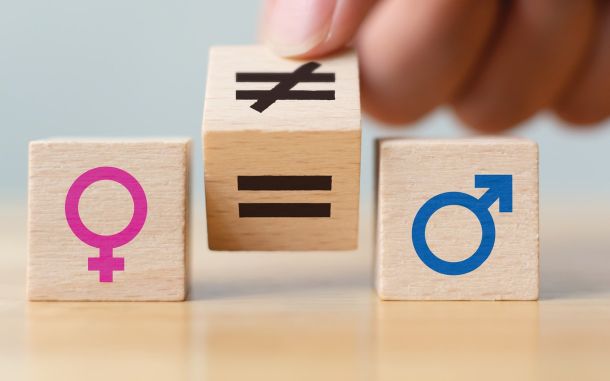Dialogs in the Park

In This Article
-
Too bad all of these leaves are dead now. I remember when they were green, fresh, and alive.
-
“I always wondered about my purpose in this life” Adam said.” But I have never found the answer.
-
If the living leaf cleans the air, produces oxygen so we can breathe, and if your dead body serves many purposes just like a simple looking dead leaf does, don’t you think it is only fair that you, as a breathing human, should have a bigger and more important purpose when you are alive?
Tim and Adam work at the same office. It was Monday. They went to Central Park to have their lunch together. It was a beautiful, cool, cloudy fall day.
On their walk to the park, they mostly talked about nature. While walking towards an empty bench, dry leaves crunched underfoot. A cool breeze swept their faces.
After finishing their lunch, they walked in the park. The sun appeared between clouds, showing its weak but warm smile.
They talked about the fall foliage, which was at its peak, and the view being just like one of Bob Ross’ paintings. The beauty and balance of nature, not touched by human hand. Then the conversation moved to the cosmos and its perfect balance and its renewal across millions of years.
Does it all happen on its own? Could it be just by accident or nature?
While leaves crunched underfoot, Adam said, “Too bad all of these leaves are dead now. I remember when they were green, fresh, and alive.”
They kept walking.
“They were beautiful when they were attached to the trees, all green and lush. Now they are dead; but they have a different beauty in them: changing colors, falling in slow motion in harmony, drying, breaking under our feet,” agreed Tim.
“It is beautiful to look at, I’ll give you that. I am in awe of their transformation. It’s how nature works. I don’t know how else to explain all of this. Too bad it is all going to be wasted and become part of the carbon cycle and that is the end of them,” Adam responded.
Tim picked up a greenish yellow leaf and contemplated its details—its shape, the veins going across it. He thought that there must be a connection between his eyes and this leaf, as his eyes really enjoyed looking at it. Then he turned to Adam and asked, “You think there is no purpose in these leaves’ existence?”
“Well, yes,” Adam said. “That is exactly how I see it. And you know what is worse is that we, too, will turn into dust and become part of the carbon cycle. I honestly do not care what happens to me after I die, you know. Part of the carbon cycle, ozone cycle, nitrogen cycle, or oxygen cycle; it does not matter to me. It makes me feel like I am here to be part of one these cycles and that is it. This entire world is like a huge recycling center.”
Tim had known Adam for a couple of years now. He was a lively, carefree, and worldly person. Tim heard something different in his tone of voice that he had not heard before: it sounded heavy. A sadness or deep contemplation; he was not sure what to call it, but it was different. Maybe it was the melancholy of the fall.
He heard more than what Adam explained. He heard Adam’s soul screaming “I do not want to be lost. I do not want to turn into dust and be gone forever. I want to live. I want to stay alive forever.”
It was painful to hear. Wasn’t this one of the base desires of human nature? To live forever?
Tim thought about this for a second and then said, “What would you think if dying, going under the soil, becoming dust, so to speak, is not actually the end of your life?”
He waited a second for Adam to take it in and then continued. “What do you make of all of this? How does it make you feel?”
Adam picked up a brown leaf with holes in it and said, “Me and this leaf are the same; we will both live and eventually die, go under the soil, and life will end for both of us.”
Tim asked, “What makes you think of that?”
“How couldn’t I? Regardless of the recycled version of me, I am g-o-n-e! Call it gas, dust, particles, atoms… Nothing matters afterwards, because I am gone from this world.” He continued: “Just like plastic, paper, or glass dumped at the recycling center, I will be dumped into the dark, wet, and cold soil and the recycling will begin. And I am finished forever! Perhaps a new form of life will emerge from our remains.”
Tim asked, “Have you ever seen how a recycling center works?
Adam replied in surprise, “No. Why?”
Tim answered, “You are partially right with your recycling analogy. After all those materials are being dumped into the recycling center, they are sorted, cleaned, melted, combined, and after all that preparation, they are given a new purpose and a new life: something new is made from them, completely different than what they were before. They are new, they work, they have a new purpose and a life to serve us all over again after they are used, broken, and thrown away!”
“And it is humans making it on their own! Guess where the inspiration comes from?” Tim smiled while asking this question.
“Nature?” Adam asked hesitantly. “I had never thought about that.” He scratched his head. “So, are you suggesting we will go into the nature’s recycling center, so to speak, and will be given a new life and a purpose after we die?”
“That was not the question I had in mind” Tim replied.
“What was it then?” asked Adam.
Tim took a deep breath of the crisp, clean autumn air and continued after a pause: “The purpose of being in this world! What do you think?”
“I always wondered about my purpose in this life” Adam said. “But I have never found the answer. And I concluded there is none with all the evil, fights against the evil, egotism, hunger... And we all die in a way; maybe some in pain and some in comfortable beds, and we are soon forgotten.”
Tim asked Adam, “What should be the aim of our lives then?”
Adam replied cautiously, “Maybe, it is living a decent life, making a difference, and leaving a positive legacy behind us?”
“Isn’t this one of the most bewildering questions? Why are we here? What am I doing here? What is my purpose? Isn’t it what everyone wonders?” Tim thought.
Still holding the leaf he picked up a while ago, Tim examined it and showed it to Adam. “Think about it,” he said. “This leaf is perfect in its own way. It has a life, a purpose, and a destiny. Right?”
Adam nodded.
“Does just being a leaf mean being purposeless? Was it just for decoration? Do you think it just hangs there and does nothing other than furnishing the tree?”
“It was part of a big tree,” Tim continued.
Adam said, “In spring, it budded, grew; some turned into flowers, and some turned into fruits, and some buds became a leaf. And now it will die and be part of one of the cycles, I guess.”
“I think so too,” agreed Tim. “And if we agree that it has a purpose, what could it be?”
“Something to do with photosynthesis, oxygen production, cleaning the air, maybe?”
“Agreed. To me it feels like nothing is wasted in nature. They get new lives, purposes. So, how come we don’t get one after we die—or don’t have one already?” Tim asked.
“So, do I need to be happy that I will die and decompose? Is that a good thing?” Adam asked. “Am I right?”
Tim smiled.
“You agreed, you and the leaf are the same: alive now, will die tomorrow, decompose, and turn into dust. Here is the question: if the living leaf cleans the air, produces oxygen so we can breathe, and if your dead body serves many purposes just like a simple looking dead leaf does, don’t you think it is only fair that you, as a breathing human, should have a bigger and more important purpose when you are alive?
“You are as perfect and as complicated as any creature on the surface of the earth; don’t you think we have a bigger purpose than a leaf?
“Can you explain why else people have this brain of ours? Isn’t it only logical that we have a greater purpose than a simple leaf?”
Tim checked the time on his phone, and they realized their lunch break was almost over. They rushed back to work while listening to the music of fall under their feet.








